Using Green

What are the benefits of using green packaging ?
Using green packaging has become increasingly popular in recent years as people have become more aware of the environmental impact of traditional packaging materials. Green packaging refers to eco-friendly and sustainable packaging solutions that are designed to reduce waste, conserve resources, and minimize pollution. Here are some of the benefits of using green packaging: Reduced Environmental Impact: - Lower Carbon Footprint: Green packaging materials often require less energy to produce than traditional materials, resulting in a lower carbon footprint. - Biodegradable and Recyclable: Many green packaging options are made from biodegradable or recyclable materials, reducing the amount of waste that ends up in landfills. - Reduced Pollution: Green packaging helps to reduce pollution by minimizing the use of harmful chemicals and toxins in the production process. Cost Savings: - Long-Term Cost Efficiency: While green packaging may initially be more expensive than traditional options, it can lead to long-term cost savings due to reduced waste disposal costs and increased efficiency in production processes. - Tax Incentives and Grants: Many governments offer tax incentives and grants for businesses that implement eco-friendly practices, including the use of green packaging. Improved Brand Image: - Enhanced Corporate Social Responsibility (CSR): Using green packaging demonstrates a commitment to sustainability and social responsibility, which can enhance a company's reputation and appeal to environmentally conscious consumers. - Increased Customer Loyalty: Consumers who value eco-friendly practices are likely to choose products with green packaging over those with traditional packaging, leading to increased customer loyalty and sales. Innovation and Creativity: - Stimulates Innovation: The need for sustainable packaging solutions encourages companies to invest in research and development, leading to innovative new products and processes. - Design Flexibility: Green packaging materials can often be molded into unique shapes and sizes, allowing for greater creativity in product design. Health Benefits: - Reduced Exposure to Harmful Chemicals: Green packaging materials are often free from harmful chemicals and toxins, reducing the risk of exposure for both consumers and workers involved in the production process. - Improved Food Safety: Eco-friendly packaging materials can help maintain food quality and safety by preventing contamination and extending shelf life.
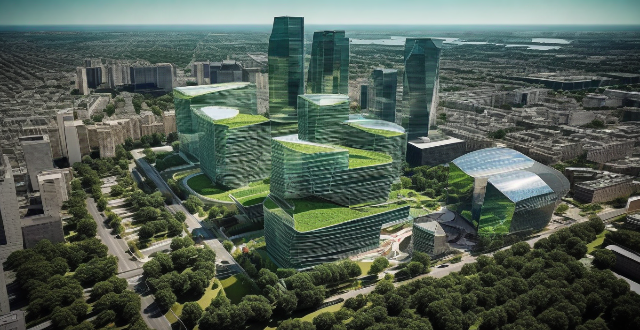
What is the significance of using green technologies in buildings for energy conservation ?
Green technologies play a crucial role in promoting energy conservation within buildings. They aim to reduce the negative impact of human activities on the environment and promote sustainable development. The significance of using green technologies in buildings for energy conservation includes improving energy efficiency, reducing carbon emissions, promoting renewable energy use, enhancing natural resource management, improving indoor air quality and noise reduction, reducing operating costs, and increasing property value. As we strive towards a more sustainable future, adopting these technologies becomes increasingly important.
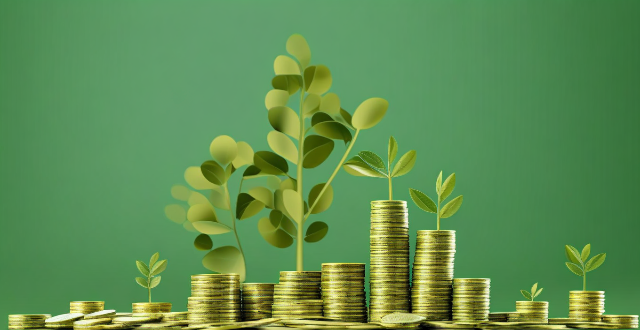
What is green finance ?
Green finance is the use of financial instruments and strategies to support environmentally friendly projects. It includes sustainable investing, green bonds, green banks, carbon credits, impact investing, climate-related disclosures, ESG criteria, green indexes, green funds, green insurance, green tax incentives, green microfinance, green real estate, green technology, and green partnerships. The goal of green finance is to promote economic growth while minimizing negative impacts on the environment.
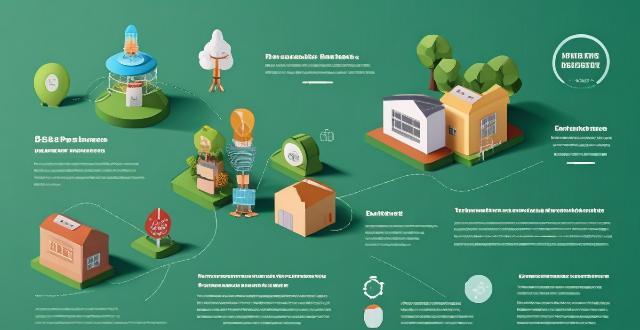
How can businesses incorporate sustainability practices and raise environmental awareness among consumers ?
Businesses can promote sustainability and raise environmental awareness among consumers by implementing green practices, engaging employees and stakeholders, and leveraging marketing and communications strategies. These include using renewable energy sources, managing waste responsibly, conserving water, offering sustainability workshops, forming green teams, collaborating with NGOs and suppliers, participating in community outreach, using eco-labels, developing green product lines, publishing sustainability reports, launching green social media campaigns, blogging about sustainability, and producing video content showcasing the company's commitment to sustainability.

What role do banks play in promoting green finance ?
Banks promote green finance by offering loans for sustainable projects, investing in eco-friendly companies, and introducing green products. They also educate customers on sustainability and collaborate with governments and NGOs to support green initiatives.

How does green finance contribute to sustainable development ?
Green finance plays a pivotal role in driving sustainable development by channeling financial resources towards environmentally friendly projects and initiatives. Here's a detailed look at how it contributes: 1. Promoting Renewable Energy 2. Supporting Green Infrastructure 3. Advancing Clean Technology 4. Influencing Corporate Behavior 5. Regulating Financial Markets 6. Educating Investors and the Public

How can we promote the use of green technology ?
Green technology is essential for mitigating climate change and ensuring a sustainable future. To promote its use, strategies include education campaigns, integrating sustainability into school curricula, offering financial incentives and tax breaks, implementing regulations, funding research and development, encouraging corporate responsibility, supporting community projects, showcasing successes, participating in global agreements, promoting eco-labeling, and encouraging green marketing. These efforts can drive innovation, create jobs, and foster economic development sustainably.
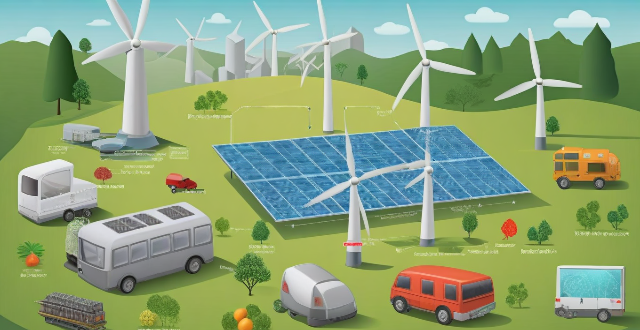
How can green technology reduce carbon emissions ?
In this article, we explore how green technology can help in reducing carbon emissions. We discuss renewable energy sources such as solar, wind, hydro, geothermal, and biomass energy, which produce little to no greenhouse gas emissions during operation. We also emphasize the importance of improving energy efficiency and conservation, utilizing carbon capture and storage technologies, and promoting electric vehicles. By implementing these green technologies, we can significantly reduce our carbon footprint and create a more sustainable future for generations to come.
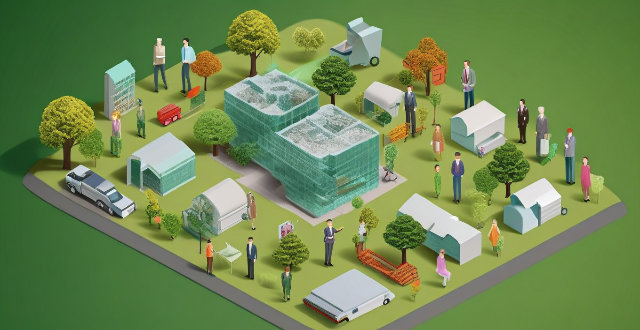
What industries offer the most green job opportunities ?
Green jobs are positions that help to preserve or improve the environment. As society becomes more aware of environmental issues and the need for sustainable development, green jobs are becoming increasingly popular. The industries offering the most green job opportunities include renewable energy, environmental science and conservation, sustainable agriculture, waste management and recycling, and green building and construction. Jobs in these sectors range from engineers and technicians to researchers and educators.

What is the future outlook for green jobs ?
The future outlook for green jobs is promising, asThe future outlook for green jobs is promising, as eco-friendly practices continues to The key factors driving this growth include government policies, consumer demand, technological advancements, corporate social responsibility, and international collaboration. Examples of green jobs include renewable energy technicians, sustainability managers, green building designers, waste management professionals, conservation scientists, and environmental lawyers.

What are the requirements for obtaining a Green Card in the USA ?
The process of obtaining a Green Card in the USA involves meeting specific eligibility criteria, completing necessary forms and submitting supporting documents, attending an interview, undergoing a medical examination, passing a background check, and receiving the card in the mail. To maintain permanent resident status, one must live in the U.S. for at least half of each year, file taxes annually, renew their Green Card every 10 years, and avoid committing certain criminal offenses.

What is green building and why is it important for the construction industry ?
Green building is an approach to design, construction, operation, and maintenance of buildings that aims to minimize environmental impact and resource consumption throughout a building's lifecycle. It focuses on sustainability, energy efficiency, water conservation, materials selection, and indoor environmental quality. The importance of green building in the construction industry stems from environmental concerns, economic benefits, and social responsibility. Green buildings reduce carbon footprint, conserve resources, preserve biodiversity, save energy costs, have higher asset values, and promote healthier living conditions. They also set community standards for sustainable practices and help companies stay ahead of compliance requirements. Green building drives innovation in materials science, design techniques, and construction technology. Overall, green building represents a fundamental shift towards more sustainable and responsible practices within the construction industry.
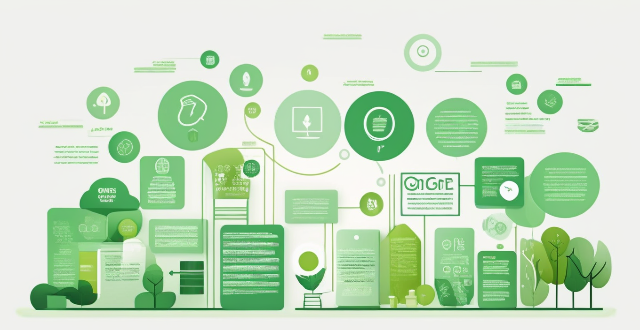
What are the benefits of using green technology in businesses ?
Incorporating green technology into businesses offers numerous benefits, including reduced energy costs, improved brand image and reputation, compliance with regulations and laws, attracting investment and funding opportunities, increased efficiency and productivity, and creating a healthier work environment for employees.

How can green finance be integrated into mainstream financial markets and products ?
Green finance is the integration of environmental considerations into financial decision-making processes. It involves using financial mechanisms to support sustainable development and promote environmentally friendly investments. Integrating green finance into mainstream financial markets and products is crucial for addressing climate change and promoting sustainable economic growth. This response discusses various ways in which green finance can be integrated into mainstream financial markets and products, including promoting green bonds, stocks, mutual funds, ETFs, and banking products; establishing supportive regulations; and raising awareness about sustainable investments.
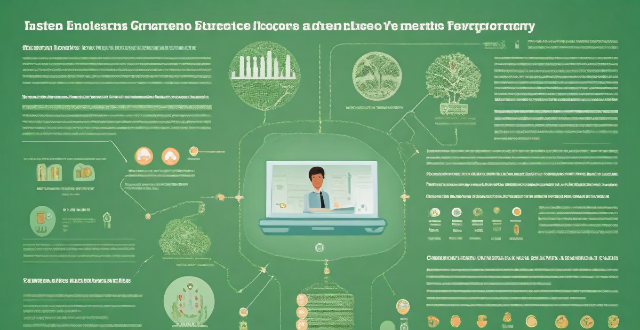
How can we encourage more people to adopt green technology ?
In this article, the author discusses various ways to encourage people to adopt green technology. These include education and awareness, financial incentives, government policies and regulations, collaboration and partnerships, and research and development. The author emphasizes the importance of promoting the benefits of green technology, highlighting its environmental impact, and sharing success stories. They also suggest offering tax credits, rebates, grants, and low-interest loan programs to incentivize individuals and businesses to invest in green technology. Additionally, the author recommends implementing mandatory standards for energy efficiency and emissions reduction, creating incentive programs for companies that exceed environmental regulations, and prioritizing the purchase of green technology products by government agencies. Collaboration with industry leaders, non-profit organizations, and local communities is also crucial in promoting the adoption of green technology. Finally, the author suggests investing in innovation, supporting startups working on green technology solutions, and facilitating access to resources for researchers and developers.

What role does government play in promoting green technology ?
The government plays a crucial role in promoting green technology. This is because the government has the power to create policies and regulations that can encourage the adoption of sustainable practices and technologies. Here are some ways in which the government can promote green technology: 1. Funding and Incentives 2. Regulations and Standards 3. Public Awareness Campaigns 4. Collaboration with Industry
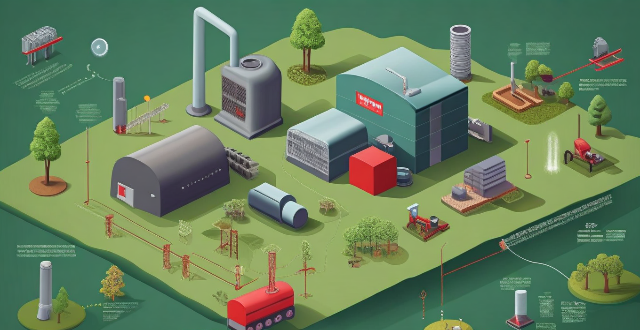
How does green technology help the environment ?
Green technology, or clean technology, includes various techniques and products designed to reduce environmental harm. Its benefits include reducing greenhouse gas emissions, conserving natural resources, protecting ecosystems, reducing waste, and promoting sustainable practices. These technologies help minimize pollution, save energy, preserve water, maintain biodiversity, and encourage recycling and responsible waste management. As green technology advances, its positive impact on the environment is expected to increase.

What are the economic benefits associated with urban green spaces ?
Urban green spaces provide economic benefits to cities, including increased property values, reduced air pollution, and enhanced tourism. These spaces improve the living environment, leading to higher home and rental prices, increased tax revenue, and healthcare cost savings. Additionally, they attract tourists, boosting the local economy through job creation and multiplier effects. Investing in urban green spaces is beneficial for both the environment and city prosperity.

How can an understanding of environmental psychology aid in the design of green spaces that enhance mental health ?
The text discusses the importance of environmental psychology in designing green spaces that enhance mental health. It highlights key principles such as biophilia, perceptions of safety, social interaction, cognitive restoration, and sensory experiences. The article suggests incorporating natural elements, defined areas, communal facilities, quiet zones, and multisensory features to create green spaces that promote relaxation, community building, cognitive engagement, and overall well-being.

What role do urban green spaces play in climate adaptation strategies ?
Urban green spaces play a crucial role in climate adaptation strategies by providing cooling effects, carbon sequestration, flood control, and habitat preservation. To effectively incorporate these spaces into climate adaptation efforts, city planners should conduct assessments, develop comprehensive plans, collaborate with local communities, monitor and evaluate projects, and educate residents about the benefits of green spaces.

What are the benefits of green jobs ?
Green jobs, also known as sustainable jobs or eco-friendly employment, refer to positions that contribute positively to the environment and help in mitigating climate change. These jobs are often focused on renewable energy, energy efficiency, pollution control, waste management, and environmental conservation. The benefits of green jobs are multifaceted and can be categorized into economic, environmental, and social dimensions. In summary, green jobs offer a triple win by stimulating economic growth, protecting the environment, and enhancing social well-being. As societies continue to prioritize sustainability, the importance of these jobs will only increase, making them a cornerstone of future employment landscapes.

What role do governments play in promoting the use of green bonds ?
Governments play a crucial role in promoting the use of green bonds by providing incentives for issuance, establishing regulations and disclosure requirements, issuing their own green bonds, and promoting education and awareness campaigns. These actions help accelerate the transition to a more sustainable economy and address pressing environmental challenges facing our planet.

How can investors identify credible green bond opportunities ?
Investing in green bonds is becoming increasingly popular as more investors seek to align their portfolios with environmental sustainability goals. However, it is crucial for investors to identify credible green bond opportunities to ensure that their investments truly contribute to positive environmental impacts. Here are some key steps and considerations for identifying credible green bond opportunities: 1. Understand the definition of green bonds. 2. Look for certification and verification. 3. Examine the use of proceeds. 4. Assess the environmental impact. 5. Check transparency and reporting. 6. Consider the credit quality. 7. Review the legal framework. 8. Consult professional advice.

Can green bonds help fight climate change effectively ?
Green bonds, a type of fixed-income instrument, are issued to fund environmentally friendly projects that aim to reduce greenhouse gas emissions and promote sustainable development. They can effectively contribute to the fight against climate change by incentivizing renewable energy projects, supporting energy efficiency and conservation, investing in low-carbon infrastructure, promoting sustainable agriculture and forestry, and advancing research and development. However, challenges such as ensuring transparency and accountability, achieving scale and impact, integrating with broader climate strategies, and engaging diverse investors must be addressed to fully realize their potential. As the market for green bonds grows, they remain an important tool in combating climate change effectively.

What are some challenges faced by green technology ?
Green technology, or environmentally friendly and sustainable technology, faces several challenges that hinder its widespread adoption. These include high initial investment and maintenance costs, limited access to resources such as rare raw materials and energy infrastructure changes, technological limitations in performance and compatibility, regulatory challenges including lack of uniform standards and bureaucratic hurdles, market barriers like consumer awareness and competition from established technologies, social and cultural factors such as resistance to change and education/training limitations, and potential environmental trade-offs and resource depletion concerns. Addressing these issues through policy initiatives, research and development, education programs, and public awareness campaigns is crucial for the successful integration of green technology into society.

How can green bonds help finance climate-friendly projects ?
Green bonds are financial instruments that raise capital specifically for climate and environmental projects. They offer increased funding opportunities by attracting a diverse investor base interested in sustainable investing, aligning with ESG criteria, and providing attractive returns. Transparency and accountability are ensured through rigorous certification processes, third-party reviews, and reporting requirements. Green bonds also catalyze climate action by incentivizing sustainable practices and supporting innovation in clean technology. Furthermore, they encourage wider market participation through investor education, public awareness campaigns, policy support, and international collaboration. Overall, green bonds are crucial for financing climate-friendly projects and accelerating the transition to a more sustainable economy.

What are the benefits of investing in green finance ?
The text discusses the benefits of investing in green finance, which supports environmentally friendly projects. It highlights three main categories of benefits: environmental, economic, and social. Environmental benefits include reducing carbon emissions, conserving natural resources, and protecting biodiversity. Economic benefits encompass job creation, innovation stimulation, and reduced energy costs. Social benefits involve improving public health, promoting social equity, and enhancing the quality of life. The article emphasizes that investing in green finance contributes to sustainable development and a better future for all.

Are green bonds a profitable investment compared to traditional bonds ?
Green bonds are a type of fixed-income security designed to finance environmentally friendly projects. While their risk and return profile can be similar to traditional bonds, green bonds offer potential diversification benefits, alignment with sustainability goals, and possibly tax benefits. However, their long-term performance relative to traditional bonds depends on various factors such as interest rate changes and market sentiment. Green bonds often come with more rigorous reporting requirements to ensure the proceeds are used for environmentally friendly projects. Whether green bonds are more profitable than traditional bonds cannot be definitively answered without considering individual investment goals and market conditions.